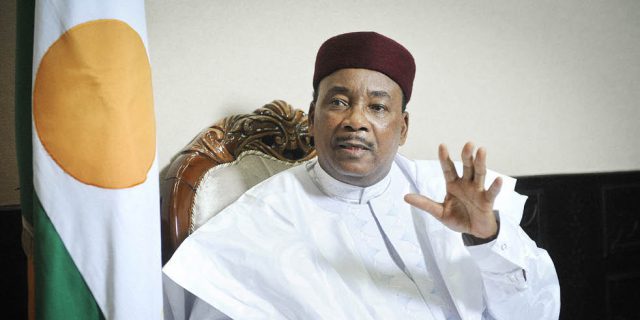The 2020 Mo Ibrahim Prize has been awarded to Niger’s outgoing president, Mahamadou Issoufou.
The Mo Ibrahim Foundation made the announcement on Sunday at the end of a meeting of its Independent Prize Committee.
“President Issoufou served two presidential terms, from 2011 to 2020. He is the 6th recipient of this prize, which rewards and celebrates excellent African leadership,” the Foundation said in a statement.
The prize, last awarded in 2017 to former Liberian president, Ellen Johnson Sirleaf, “recognizes the exceptional leaders who, during their term, have developed their country and strengthened democracy, society and the rule of law for the benefit of all their fellow citizens.”
The Ibrahim Prize is an award worth $5 million spread over ten years.
It allows Africa to continue to benefit from the experience and wisdom of its exceptional leaders by giving them the opportunity to pursue civic action on the continent, once their term comes to an end.
The Prize Committee insists on the exceptional leadership of President Issoufou, at the head of one of the poorest countries in the world, facing a series of ostensibly overwhelming challenges.
“Throughout his term, he has consolidated economic growth for the benefit of his fellow citizens, demonstrated unwavering commitment to regional stability and tirelessly defended respect for constitutional and democratic rule,” the statement said.
“Faced with the most serious political and economic problems, including violent extremism and growing desertification, President Issoufou has been able to lead his country on the path to progress. As of today, the number of Nigeriens living below the poverty line has fallen to 40 percent from 48 percent ten years ago,” said Festus Mogae, Chairman of the Prize Committee and former president of Botswana.
“Obviously the challenges remain significant, but President Issoufou has kept his commitments to the Nigerien people and paved the way for a brighter future” Mogae said.
Mahamadou Issoufou was democratically elected president for the first time in 2011, following years of military rule in Niger.
He was re-elected for a second term in 2016.
His protégé, Mohamed Bazoum was elected as his successor in the second round of the February 21 presidential election, polling 55.75 percent of the vote, ahead of his challenger Mahamane Ousmane who garnered 45.25 percent.
TE/fss/as/APA


